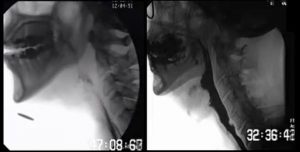So, you think you want to be a speech and language therapist. That is awesome. Thank you for considering a challenging, rewarding and exciting (and sometimes pretty tiring) course. It’s also true that it can be tricky to figure out what to do next, how to get more information about universities and also about what the job entails (aside from reading fascinating student blogs…). So here are some suggestions I have, some of which may help you decide  whether or not it’s the right path for you.
whether or not it’s the right path for you.
Go to a higher education fair – there may be one being held at your school, college, or at a venue in your nearest big town or city. These are big events where representatives from lots of universities come along to give you info about their institution and courses offered there. They’re also a really good way of meeting current students, which may give you an idea of the atmosphere of a particular university. If they offer SLT as a course, you’ll be able to look at a prospectus, find out about entry requirements and get information on how to contact relevant departments or schools- admissions, for example- if you have specific or complex questions.
There may also be opportunities to attend talks, perhaps also at your school or college. In a few weeks I’ll be going along to a health professions morning, where students rotate around different stations, each manned by a health student or professional. We give a short presentation on our average day, pros and cons of the job and leave time for questions. For me, this is one of the most exciting things we can do and it’s amazing to see young people get interested in something they didn’t know about before. I definitely don’t want it to sound like everyone comes away totally inspired, but at least they’re more informed about their options.
I would say that a really important thing to do at this stage is not panic if it seems like you’re not studying relevant subjects. My A levels were in English literature, art and design and drama, I have a drama degree and I still got a place on the course. Yes, I did an extra science A level as I was advised this would help with my application, so I went ahead and grafted for it. It’s not too late to make new decisions and there are ways of getting places that may not be listed in the prospectus- check with the university you’re thinking of applying to about equivalent qualifications. But before I took that step, I did as much volunteering as I could to try and make sure that I knew something about what SLT involves. So I had specific examples of clients and intervention/therapy strategies that I could reflect upon in my personal statement.
Finally, and most importantly, if you’re not sure then don’t worry and take your time. Not to sound too dramatic about the whole thing, but undertaking a vocational course is a big decision. So breathe, do your research and get some experience. The rest will follow.
(N.B. The cat in the meme is not Mouse; there is no way she’d let me put a tie on her).
If you would like to learn more about studying Speech and Language Therapy at City, you can visit the course page here.



Recent Comments